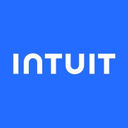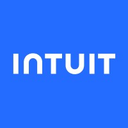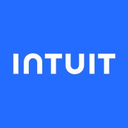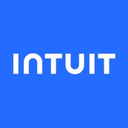QuickBooks vs Centage (2025 Comparison)

QuickBooks offers a comprehensive suite of accounting features, making it a versatile tool for managing your business finances. Its user-friendly interface and wide range of integrations enhance its functionality.
- Comprehensive accounting features
- User-friendly interface
- Wide range of integrations
- Limited advanced budgeting tools
- Higher cost for premium features
Free plan?
YesStarting price
$17.50 per month
Centage provides advanced budgeting and forecasting tools, empowering businesses to make informed financial decisions. Its robust analytics features offer deep insights into financial data.
- Advanced budgeting capabilities
- Robust forecasting tools
- Strong analytics features
- Steeper learning curve
- Less focus on invoicing
Free plan?
NoStarting price
$950 per monthWhat is QuickBooks?
QuickBooks is a comprehensive accounting software designed to simplify financial management for small to medium-sized businesses. It offers features like invoicing, expense tracking, and payroll management, making it a go-to solution for business owners. With its user-friendly interface, QuickBooks helps you keep your finances organized, ensuring you can focus on growing your business. Whether you're managing cash flow or preparing for tax season, QuickBooks provides the tools you need to stay on top of your financial game.
What is Centage?
Centage is a powerful budgeting and forecasting software that empowers businesses to make informed financial decisions. It offers advanced analytics and reporting tools, allowing you to create accurate budgets and forecasts with ease. Centage helps streamline financial planning processes, enabling you to identify trends and make strategic decisions. With its intuitive interface and robust features, Centage is ideal for businesses looking to enhance their financial planning capabilities and drive growth.
Pros and Cons of QuickBooks vs Centage

Pros & Cons of QuickBooks
- QuickBooks offers a wide range of accounting features, including invoicing, expense tracking, and payroll management. These features make it a versatile tool for managing your business finances effectively.
- The intuitive interface of QuickBooks makes it easy for users to navigate and manage their finances. This user-friendliness is particularly beneficial for small business owners who may not have extensive accounting knowledge.
- QuickBooks integrates with a variety of popular business applications, enhancing its functionality and allowing users to streamline their workflows. This makes it a flexible solution for businesses with diverse needs.
- While QuickBooks offers basic budgeting features, it lacks the advanced tools needed for complex financial planning. Businesses with more sophisticated budgeting needs may find this limitation challenging.
- QuickBooks' premium features come at a higher cost, which may be a consideration for budget-conscious businesses. It's important to weigh the benefits of these features against their cost.

Pros & Cons of Centage
- Centage offers advanced budgeting tools that allow businesses to create detailed budgets and forecasts. These capabilities are ideal for companies looking to enhance their financial planning processes.
- Centage excels in forecasting, providing businesses with accurate predictions of future financial trends. This feature is invaluable for strategic planning and decision-making.
- Centage provides powerful analytics tools that offer deep insights into financial data. These features help businesses make informed decisions and drive growth.
- Centage's advanced features come with a steeper learning curve, which may require additional training for users. This can be a consideration for businesses with limited resources.
- While Centage offers invoicing capabilities, its primary focus is on budgeting and forecasting. Businesses with significant invoicing needs may find this limitation challenging.
QuickBooks vs Centage: At A Glance
Value to Price
Value to Price is a critical dimension that evaluates the cost-effectiveness of a software solution. QuickBooks offers a comprehensive suite of features at a competitive price, making it a great choice for small businesses. Centage, while slightly more expensive, provides advanced budgeting tools that justify its cost for larger enterprises. If you're a small business owner looking for a cost-effective solution, QuickBooks is the better option.
Ease of Use
Ease of Use assesses how user-friendly a software is. QuickBooks is known for its intuitive interface, making it easy for users to navigate and manage their finances. Centage, while powerful, has a steeper learning curve due to its advanced features. If you prefer a straightforward and easy-to-use tool, QuickBooks is the way to go.
Functionality
Functionality measures the range of features a software offers. QuickBooks provides a wide array of accounting tools, including invoicing, payroll, and expense tracking. Centage excels in budgeting and forecasting, offering robust analytics and reporting capabilities. If your primary need is comprehensive accounting features, QuickBooks is the better choice.
Scalability
Scalability evaluates how well a software can grow with your business. QuickBooks is suitable for small to medium-sized businesses, while Centage is designed to support larger enterprises with complex financial planning needs. If you're planning for significant growth, Centage offers the scalability you need.
Integrations
Integrations assess how well a software can connect with other tools. QuickBooks offers a wide range of integrations with popular business applications, enhancing its functionality. Centage also provides integrations, but its focus is more on financial planning tools. If you need extensive integrations, QuickBooks is the better option.
Customer Support
Customer Support evaluates the quality of assistance provided by the software company. QuickBooks offers comprehensive support options, including phone, chat, and email support. Centage provides dedicated support for its users, ensuring they can maximize the software's potential. If you value extensive support options, QuickBooks is the better choice.
Security
Security measures the protection of data within the software. QuickBooks employs robust security protocols to safeguard user data, making it a reliable choice for businesses. Centage also prioritizes security, offering secure data storage and access controls. If security is a top priority, both tools offer strong protection, but QuickBooks has a slight edge.
Overall Rating
Overall Rating is a comprehensive assessment of the software's performance across all dimensions. QuickBooks scores higher due to its user-friendly interface, extensive features, and strong customer support. Centage, while slightly lower, excels in budgeting and forecasting capabilities. If you're looking for an all-around performer, QuickBooks is the better choice.
QuickBooks vs Centage: A Detailed Breakdown of Key Features
Invoicing
QuickBooks excels in invoicing, offering customizable templates and automated reminders that make billing clients a breeze. I found it incredibly easy to set up recurring invoices, saving me time and ensuring timely payments. Centage, while offering invoicing capabilities, focuses more on budgeting and forecasting, which might not be as comprehensive for invoicing needs. If invoicing is a critical part of your business, QuickBooks is the better choice.
Expense Tracking
Expense tracking in QuickBooks is seamless, with features like receipt capture and categorization that simplify managing business expenses. I appreciated the ability to link bank accounts for automatic transaction updates. Centage offers expense tracking but is more geared towards financial planning. If you need robust expense tracking, QuickBooks is the way to go.
Payroll Management
QuickBooks offers comprehensive payroll management, including tax calculations and direct deposit options. I found it easy to manage employee payments and stay compliant with tax regulations. Centage, while offering payroll features, is more focused on budgeting and forecasting. If payroll management is a priority, QuickBooks is the better option.
Budgeting
Budgeting is where Centage shines, offering advanced tools for creating detailed budgets and forecasts. I was impressed by its ability to handle complex financial scenarios and provide insightful analytics. QuickBooks offers budgeting features but is more focused on accounting. If budgeting is your main concern, Centage is the superior choice.
Forecasting
Centage excels in forecasting, providing robust tools for predicting future financial trends. I found its forecasting capabilities to be highly accurate and valuable for strategic planning. QuickBooks offers forecasting features but is more focused on day-to-day accounting. If forecasting is crucial for your business, Centage is the better option.
Analytics
Both QuickBooks and Centage offer strong analytics capabilities, but Centage takes it a step further with advanced reporting tools. I appreciated the depth of insights Centage provided, which helped me make informed financial decisions. QuickBooks offers analytics but is more focused on accounting tasks. If you need in-depth analytics, Centage is the better choice.
Pricing Comparison of QuickBooks and Centage
To assist you in making an informed choice, we’ve outlined the pricing plans and essential features of QuickBooks and Centage. This comparison will highlight the best option for managing your financial needs.

QuickBooks Pricing Plans
- Automate bookkeeping tasks to save time and reduce errors.
- Capture and organize receipts for easy tracking and reporting.
- Track mileage to maximize tax deductions and reimbursements.
- Generate general reports to gain insights into business performance.
- Handle multiple currencies for international transactions.
- Connect up to 3 sales channels for seamless integration.
- Generate enhanced reports for deeper business insights.
- Includes 3 users for collaborative work environment.
- Analyze project profitability to optimize resource allocation.
- Connect all sales channels for comprehensive sales tracking.
- Includes 5 users for expanded team collaboration.
- Generate comprehensive reports for detailed financial analysis.
- Sync data with Excel for advanced data manipulation.
- Manage up to 25 users for large team collaboration.
- Access 24/7 support and training for continuous assistance.
- Utilize revenue recognition for accurate financial reporting.

Centage Pricing Plans
- Formula-free modeling to simplify financial planning.
- Access to all standard financial reports for comprehensive insights.
- General ledger integration for streamlined data management.
- Unlimited dimensions & attributes for flexible reporting.
- Scenario planning & what-if analysis for strategic decision-making.
- Workflow management to enhance team collaboration.
- Role-based permissions for secure data access.
- 4 hours/month of Centage Care for personalized support.
- Custom views by department for detailed insights.
- SSO & multi-factor authentication for enhanced security.
- Audit Log & Scheduled Plan Deployment for compliance.
- Unlimited Centage Care for comprehensive support.
Our Rating Methodology
We thoroughly evaluate each financial software, focusing on key aspects like functionality, ease of use, and scalability. By analyzing user feedback and expert reviews, we ensure our recommendations align with your needs. Each factor is weighted to provide an accurate final rating, helping you choose the best tool for your business.
QuickBooks or Centage: Which One Matches Your Business Needs?
Choose QuickBooks If You Need ...
- Comprehensive accounting solution
If you are a small business owner looking for a comprehensive accounting solution, QuickBooks is the ideal choice. Its wide range of features, including invoicing, expense tracking, and payroll management, make it a versatile tool for managing your finances.
- User-friendly interface
If you prefer a user-friendly interface that simplifies financial management, QuickBooks is the better option. Its intuitive design makes it easy for users to navigate and manage their finances, even without extensive accounting knowledge.
Choose Centage If You Need ...
- Advanced budgeting capabilities
If you need advanced budgeting capabilities for detailed financial planning, Centage is the superior choice. Its robust tools allow you to create accurate budgets and forecasts, making it ideal for businesses with complex financial needs.
- Robust forecasting tools
If forecasting is a critical part of your business strategy, Centage offers the tools you need. Its accurate predictions of future financial trends provide valuable insights for strategic planning and decision-making.
Frequently Asked Questions
 Which tool is better for small businesses?
Which tool is better for small businesses?
 Which tool offers better budgeting capabilities?
Which tool offers better budgeting capabilities?
 Which tool is more cost-effective?
Which tool is more cost-effective?
 Which tool offers better customer support?
Which tool offers better customer support?
 Which tool is better for forecasting?
Which tool is better for forecasting?
 Which tool offers more integrations?
Which tool offers more integrations?

Martin Lunendonk
Martin Lunendonk is a senior tech writer specializing in website builders, web hosting, and ecommerce platforms. With a background in finance, accounting, and philosophy, he has founded multiple tech startups and worked in medium to large tech companies and investment banking, bringing deep expertise and reliable insights to his software reviews.



